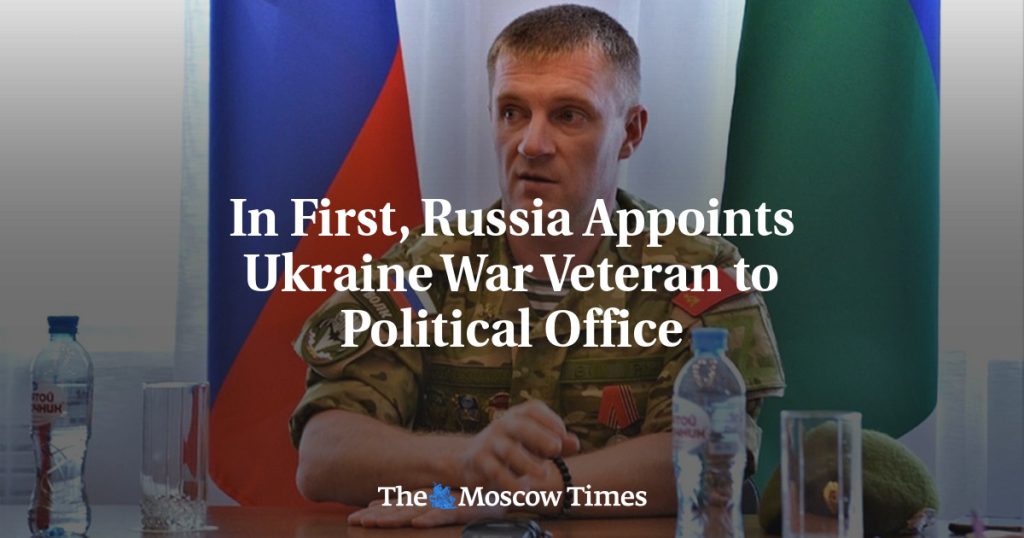A veteran of Russia’s war on Ukraine, Ruslan Alexandrov, has been appointed as a district head in his home region, marking the first known example of a participant in the war being named to public office in Russia. The Berezovsky District Duma unanimously endorsed Alexandrov’s candidacy for the role, and his inauguration is set to take place shortly. Alexandrov, who hails from the Khanty-Mansi autonomous district in western Siberia, volunteered for the army in 2022 and served in an intelligence unit on the front lines in Ukraine before being wounded and returning to his native district.
After returning from the war, Alexandrov started working at a local enlistment center for military volunteers. Prior to his military service, he worked as an environmental specialist in the Berezovsky district administration and also held a job at a sports center in the region’s capital of Khanty-Mansiysk. President Vladimir Putin has expressed support for war veterans like Alexandrov, referring to them as the “future elites” of the country and hinting at upward social mobility for those who fought in Ukraine. Putin emphasized the importance of forming the country’s elite from individuals with military experience.
The appointment of Alexandrov as a district head raises questions about the integration of war veterans into public office in Russia. While his military service may have provided him with valuable experience and skills, the decision to place a former soldier in a position of leadership could be seen as controversial. Some may view the appointment as a step towards honoring and recognizing the contributions of those who served in the war on Ukraine, while others may express concern about the potential implications of having individuals with military backgrounds in positions of power within the government.
It is unclear how Alexandrov’s appointment will be received by the residents of the Berezovsky district and the broader Russian public. While some may view his military background as a positive attribute that brings unique perspectives and capabilities to his new role, others may have reservations about having a former soldier lead their community. The decision to appoint Alexandrov could spark discussions about the role of war veterans in public office and whether their military experience should be a determining factor in their eligibility for leadership positions.
As Alexandrov prepares to assume his new role as district head, he will face the challenges and responsibilities that come with leading a community. His experiences as a soldier in the war on Ukraine may shape his approach to governance and decision-making. The public’s reaction to his appointment will provide insight into the attitudes towards war veterans in positions of leadership in Russia. Overall, Alexandrov’s appointment signifies a significant development in the integration of war veterans into public office in Russia and may have broader implications for the country’s political landscape.


